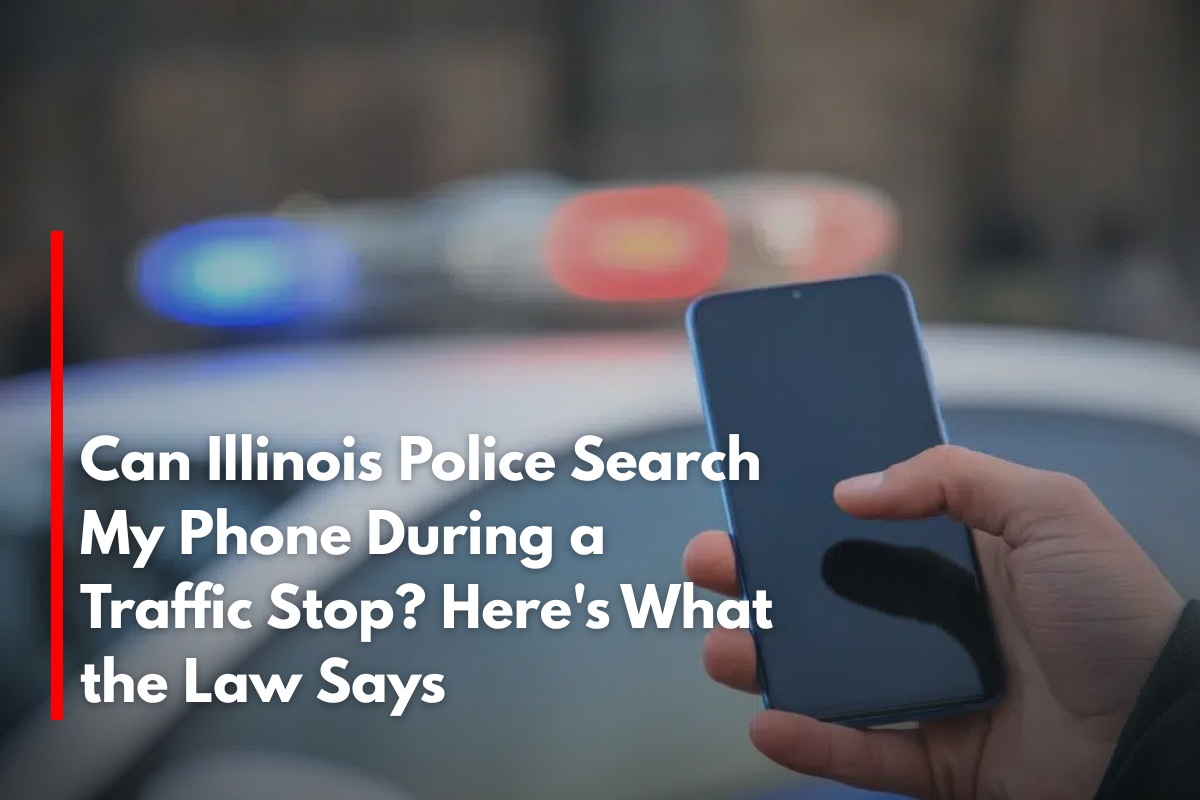Cell phones are packed with personal information, making them one of the most sensitive items you carry. If you’re pulled over in Illinois, it’s important to know your rights regarding police searches of your phone. Here’s a clear breakdown of what the law says.
The Fourth Amendment and Your Phone
The Fourth Amendment to the U.S. Constitution protects you from unreasonable searches and seizures. This means that, in most cases, police need a warrant to search your phone—even during a traffic stop. The U.S. Supreme Court’s decision in Riley v. California made it clear: police cannot search the contents of your cell phone without a warrant, except in very limited circumstances.
When Can Police Search Your Phone?
1. With Your Consent
If you voluntarily allow the officer to search your phone, they can do so without a warrant. However, you are under no obligation to give consent, and officers are not required to inform you that you can refuse.
2. With a Warrant
Police can search your phone if they obtain a search warrant from a judge, which requires probable cause to believe your phone contains evidence of a crime.
3. Certain Exceptions
There are rare situations where police may search your phone without a warrant:
- Exigent circumstances: If officers believe evidence on your phone is about to be destroyed or there is an immediate threat to safety, they may conduct a search.
- Incident to arrest: Police may seize your phone when you are arrested, but they still generally need a warrant to search its contents.
What About Routine Traffic Stops?
During a standard traffic stop, police cannot search your phone or demand you hand it over unless you give consent or they have a warrant. You are not required to unlock your phone or provide your password. If an officer asks for your phone, you can politely decline.
Note: If you use your phone to show proof of insurance, officers can view the insurance information but do not have the right to search through other contents on your device8.
Table: When Can Police Search Your Phone in Illinois?
| Situation | Can Police Search Your Phone? | Notes |
|---|---|---|
| Routine traffic stop | No | Unless you consent or they have a warrant |
| You give consent | Yes | Consent must be voluntary |
| With a search warrant | Yes | Requires probable cause |
| Exigent circumstances | Sometimes | Immediate threat/evidence destruction |
| After arrest (incident to arrest) | Phone can be seized, but search of data usually requires a warrant |
What Should You Do If Asked to Hand Over Your Phone?
Politely decline if you do not wish to consent.
Do not unlock your phone or provide your password unless there is a warrant.
Ask if you are free to leave if the stop is complete.
Remain calm and respectful—do not physically resist, even if you believe your rights are being violated.
If Your Phone Was Searched Without Consent
If you believe police searched your phone unlawfully, contact a criminal defense attorney. Evidence obtained through an illegal search may be inadmissible in court, which could significantly impact your case.
Illinois police cannot search your phone during a traffic stop without your consent or a warrant, except in rare emergency situations. Knowing your rights can help you protect your privacy and respond appropriately if you’re ever asked to hand over your device.
Sources
[1] https://www.cosleycriminaldefense.com/criminal-blog/can-police-search-phone
[2] https://www.isba.org/ibj/2014/09/ussupremecourtsaysnocell-phonesea
[3] https://daileylawyers.com/blog/can-law-enforcement-search-your-cell-phone-without-consent/
[4] https://www.diquattrolawoffices.com/blog/when-are-police-allowed-to-search-without-a-warrant-in-illinois
[5] https://www.brunolawoffices.com/articles/when-search-warrants-arent-needed/











